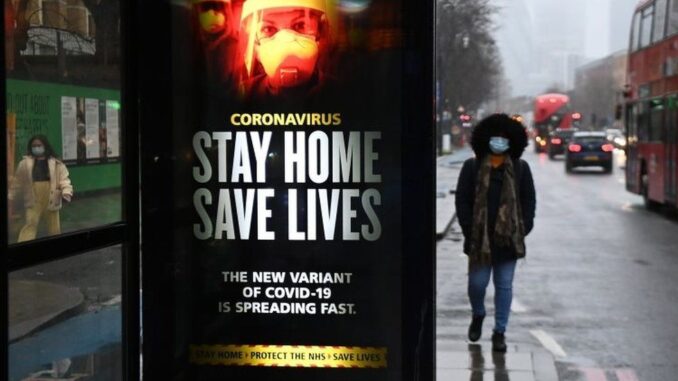
The UK government used “propagandistic” tactics to scare the public into mass compliance during the first covid lockdown, according to a behavioral scientist who worked inside No 10.
Simon Ruda co-founder of Downing Streets ‘Nudge Unit’, said while the group was initially set up to encourage positive behavioral changes in the British public without the need for coercion or legislation, it was weaponized during the covid pandemic to scaremonger and create fear.

BYPASS THE CENSORS
Sign up to get unfiltered news delivered straight to your inbox.
You can unsubscribe any time. By subscribing you agree to our Terms of Use
Latest Video
Rada suggess there had been an overemphasis on modelling and data that he warned was ‘propagandistic’.
The Mail Online reports: Writing in the magazine Unherd today, he said fear was initially used to boost public compliance during the first lockdown but had been carried right through the crisis.
‘That fear seems to have subsequently driven policy decisions in a worrying feed-back loop,’ said Mr Ruda, who help set up No10’s Behavioural Insights Team in 2010.
‘In my mind, the most egregious and far-reaching mistake made in responding to the pandemic has been the level of fear willingly conveyed on the public.’
Launched under David Cameron’s Government, the group was responsible for positively influencing behaviour with tiny changes without introducing legislation.
Its previous successes included boosting diversity in the policeforce, helping the Job Centre get more people off benefits and increasing the number of organ donors.
But Mr Ruda warned deploying ‘nudge’ tactics during the pandemic may have amounted to ‘state sanctioned propaganda’.
‘Behavioural science was conceived as a means of recognising and correcting the biases that lead humans to make non-rational decisions.
‘But it’s not obvious to me that the trade-offs many governments are making in their responses to the pandemic are grounded in utilitarian rationality.’
Ministers have been criticised for putting too much stock in ‘worst-case’ Covid scenarios from modelling by its advisers.
The Government has used these projections of cases and deaths to justify restrictive measures to the public or to encourage people to change their behaviours.
One of the more recent models warned of 6,000 daily Covid deaths and 10,000 hospitalisations this winter in a pessimistic scenario.
In reality, there are just 250 deaths per day now — around half of a bad flu year — and 2,000 hospital admissions.
No10’s chief modeller has previously said that the committee does not consider optimistic scenarios because ‘that doesn’t get decisions made’.
While no new restrictions were brought in in England, people were told to cancel their Christmas parties and ‘prioritise’ who they met.
More restrictive measures were reintroduced in Scotland, Wales and Northern Ireland.
But Mr Ruda suggested that there were not enough experts within Downing Street’s scientific ranks who challenged the data or advice.
Referencing the Government’s now-famous ‘following the science’ line, Mr Ruda said: ‘As we’ve learned over the past two years, focusing on ‘the science’ is blinkered…
‘Placing all value on data risks de-prioritising reflection, reason and debate — and obscuring the limitations of that data as a depiction of reality…which is why we need multidisciplinary teams, a strong culture of intellectual humility and designed-in cognitive diversity to tackle problems, especially in times of uncertainty.’
Many experts have called for the daily publication of Covid cases, deaths and hospital admissions to be scrapped or put into context with other illnesses.
‘The more we measure something, like Covid infections, the more prominent it becomes and so the more it matters,’ Mr Ruda wrote.
He also raised concerns about the longer-term effects of the campaign of fear deployed during the pandemic.


